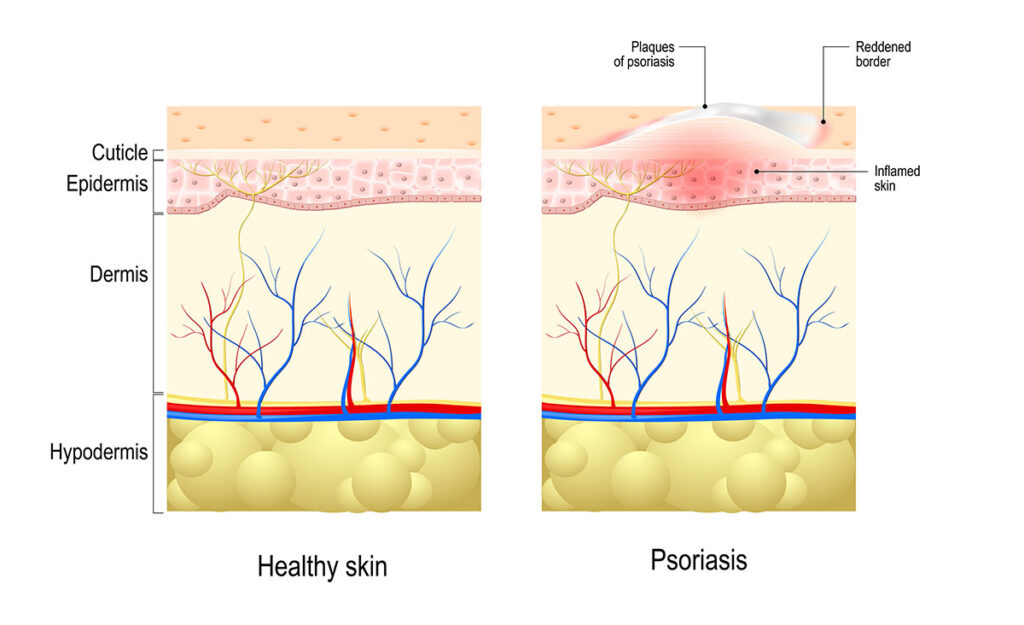August is Psoriasis Awareness Month, an initiative aimed at educating those affected by the disease about various aspects, including its causes, triggers, and treatment strategies. The exact cause of psoriasis, a disease largely influenced by immune system and genetic factors, remains unclear.
What Is Psoriasis?

Psoriasis, an autoimmune disease primarily affecting the skin, does not discriminate by race or ethnicity. It affects millions of people worldwide, including individuals within the Black community. Yet, the discussion around psoriasis often overlooks the unique challenges that Black individuals face in diagnosis and treatment. A deeper understanding of how psoriasis impacts this group can lead to improved outcomes and better patient care.
How Does Psoriasis Affect Black Patients Differently?
The first hurdle in the path to effective treatment is diagnosis. Psoriasis presents differently in darker skin tones, which can lead to misdiagnosis or delayed treatment. In people with lighter skin, psoriasis tends to show up as red, inflamed patches covered with silvery scales. However, in people with darker skin, including Black individuals, these patches may appear purple, brown, or a darker gray. This difference in manifestation can often confuse, leading to incorrect diagnoses like eczema or fungal infections.
Moreover, the scale associated with psoriasis might be less noticeable in the Black community due to the unique properties of black skin. These differences can result in the disease’s under-recognition, contributing to disparities in disease management.
Additionally, the psychosocial impact of psoriasis should not be underestimated. Psoriasis lesions can cause feelings of embarrassment or anxiety, impacting an individual’s quality of life.
Treatment Of Psoriasis In Black Patients
Treatment of psoriasis in Black individuals can be uniquely challenging. The potential for post-inflammatory hyperpigmentation or hypopigmentation, where skin patches become noticeably lighter or darker than the surrounding skin, is a major concern. Many of the commonly prescribed treatments for psoriasis, such as topical corticosteroids, have been linked with these pigment changes. Thus, healthcare providers must consider the risk of altering skin pigmentation when developing a treatment plan for Black individuals with psoriasis.
Psoriasis research and treatment protocols must be more inclusive and cater to diverse skin types. Black individuals should be adequately represented in clinical trials for new psoriasis treatments to ensure the findings and recommended treatments are universally applicable. Additionally, dermatologists should be trained to recognize psoriasis on different skin types and provide culturally sensitive care.
Education can also play a significant role in addressing these disparities. It’s essential to educate not just healthcare professionals, but also individuals in the Black community about psoriasis. Awareness can lead to early detection, proper treatment, and better outcomes for individuals with this chronic condition.
While psoriasis affects individuals across racial and ethnic groups, the impact on the Black community is distinct and often overlooked. Increasing recognition of these unique challenges is the first step in improving care and outcomes for Black individuals with psoriasis. Through research, education, and improved access to care, we can work towards a future where psoriasis treatment is truly inclusive and equitable.









